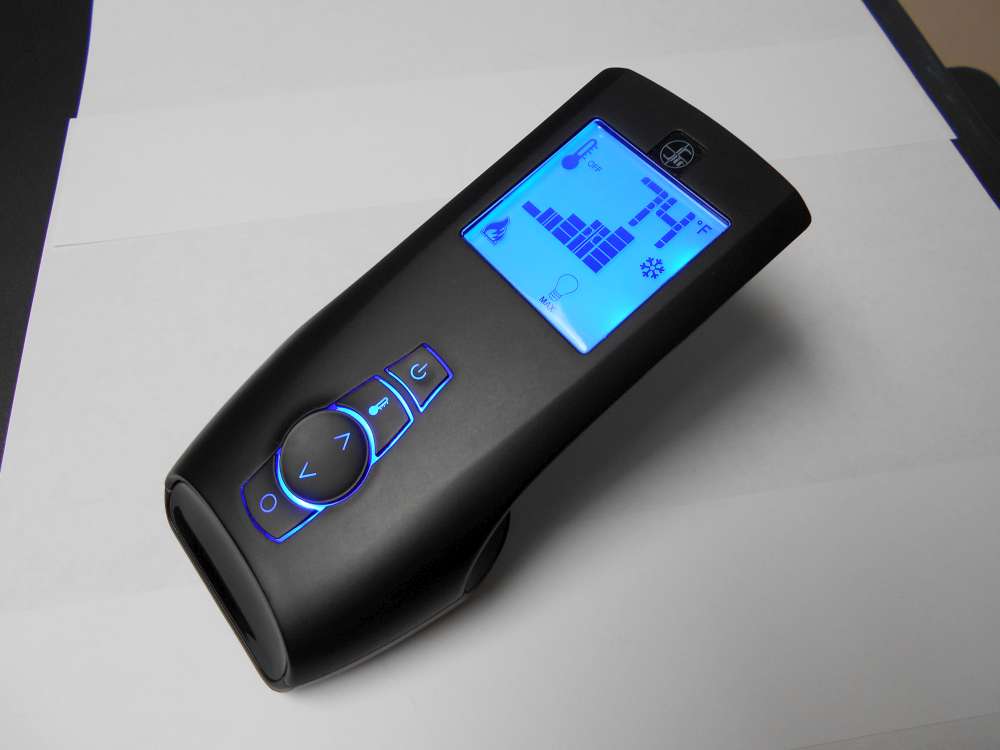We’re guessing that you really enjoy your gas fireplace and what it adds to your home… the wonderful heat from it, the dancing flames and glowing embers and especially how easy it is to use. But all of a sudden, it’s making an odd, beeping noise. Is this something to be concerned about? Is this a dangerous symptom? Should I stop using it and call my dealer? What’s the remedy?
Don’t fret, don’t panic and you probably don’t have to call 911. A simple fix is at hand that most homeowners can take care of themselves!
BATTERY POWER!
Most fireplaces today are installed with remote controls. Many older models can be easily and inexpensively retrofitted with a convenient and easy to use remote.
When you press a remote control for your fireplace, a signal is sent to a receiver. This receiver is usually located behind the lower grill of a gas fireplace as part of a battery box or module. If the batteries are weak and cannot pick up the radio signal from the remote, the fireplace will not turn on or ignite because the gas valve will not open.
The batteries for fireplaces, stoves and inserts, do not have particularly long lives. The batteries need to be regularly exchanged with fresh ones. As a safety and customer convenience feature, when these batteries get weak, an audible ‘beep’ will be heard. You may also notice a small, red blinking light on the receiving unit before the beep is heard. Now is the time to replace the batteries.
Replacing batteries in a battery box or receiving unit will vary a bit from manufacturer to manufacturer. Some will have a small, easy to spot door for the batteries. Others may have a spring-loaded door that pops out when depressed or some kind of clips that keep the batteries contained. Check the owner’s manual or simply call your WE LOVE FIRE expert if you need help.
A few other points are worth mentioning:

- Be sure to use the correct type of battery if specified by the manufacturer.
- The frequency code and syncing up the remote to the receiver is normally done at the time of installation. Usually, it’s not necessary to make any adjustments to this code. However, some electric models may need to be re-synced each time the remote batteries are replaced.
- Batteries in the remote control will last longer than those in the receiving unit.
- Replacing the batteries in the remote control is similar to replacing them in other remote control devices. There’s a cover that slides on and off, that’s located on the back of most remotes that will expose the batteries.
- Many remotes have a built-in timer that will automatically turn the appliance off after several hours of continuous use.
IGNITION SYSTEMS:
Your gas fireplace is easy to turn on and off because of the ignition system. There are two types. Gas fireplaces, stoves and inserts will use either a ‘millivolt’ system or an ‘intermittent pilot ignition’ system (IPI), aka electronic ignition.
A millivolt system utilizes a standing pilot light that is continually lit, regardless if the appliance is turned on. You’ll likely notice the pilot light. It’s a small blue flame, about ¾” high, hidden among the logs.
Meanwhile, an IPI system uses an “on demand” pilot that is only on when the fireplace is operating. The pilot light will not ignite the burner if the batteries are too weak in an IPI fireplaces. Most IPI systems have a “continuous on” position and an “IPI” position on the receiver. If the batteries in the receiver module are replaced, check your owner’s manual as it may be important to have this switch in a specific position in order for it to function correctly. The question often comes up, “Will an IPI system work if power to the house is interrupted?” The answer is yes, provided the batteries are fresh.
HOW OFTEN TO REPLACE?
Your “beeping” fireplace is telling you something: It’s time to replace batteries! Keep in mind that the receiving module will need fresh batteries more frequently than the remote control. Maybe get in the habit of changing these batteries along with the batteries in your smoke alarms. Many customers have found that by replacing these batteries in the spring and fall, they can eliminate this friendly and often very annoying reminder!
Of course, if you need assistance your WE LOVE FIRE expert is ready, willing and able!







6 Responses